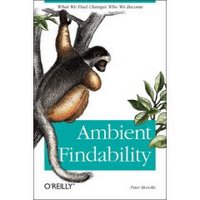
Mapheads, this post isn't about maps or GIS so you can safely skip it. I'll post something about "finadability" in a minute.
The movie of C.S. Lewis' the Lion, the Witch and the Wardrobe is coming out soon. I read these books avidly when I was young, only to find out later on that they were a Christian allegory. I remember it was a tremendous shock to me to learn this--I naively read them as a simple fantasy story. I kinda went off them after that. But I am looking forward to the movie.
Anyway, so this fight has broken out between Narnia advocates and Philip Pullman, the author of the His Dark Materials series, a kind of competing children's story that features alternative universes and child protagonists. I don't know if you've read the Dark Materials, but, well, they're dark, and pretty down on established religion. Again I must have read them quite naively because they seemed to me to be pro-faith, if interpreted outside the strictures of the old church teachings. Come to find out though that Pullman is an atheist, who has attacked the Narnia series as quoted in this Chronicle of Higher Ed piece:
In articles, interviews, and speeches, Pullman has described The Chronicles not just as "propaganda in the cause of the religion [Lewis] believed in," but also as guilty of advancing views such as, "Death is better than life; boys are better than girls; light-colored people are better than dark-colored people; and so on." And those are just Pullman's G-rated charges. He also has blasted The Chronicles in public forums as "one of the most ugly and poisonous things I've ever read," "propaganda in the service of a life-hating ideology," "blatantly racist," "monumentally disparaging of girls and women," and marked by a "sadomasochistic relish for violence."
(No source was given for this quote, but I believe it's from this 1998 interview
here; see more recently
here, and
letters here.)
The
Chronicle rushes to Narnia's defence, but it's a trash-job on Pullman (the story doesn't allow comments -- old-style MSM or what! -- so I'm replying here instead). Basically I think it's missed the point,
The Chronicles of Narnia IS pretty sexist and racist and just by pointing out that it has some strong female characters doesn't change that. These strong characters exist in a world where evil is symbolized by a powerful temptress (remember how she plies Edmund with Turkish Delight?). And then there's the structural sexism throughout the society, with roles defined by sex.
And like Tolkien's
Lord of the Rings with its swarthy Ottoman/Turk-like baddies, the baddies in Narnia have dark skin, are cruel, and pray to another god, mocking the Christ figure by dressing up a donkey in a lion skin in order to maintain their hegemony.
So in Narnia, knowledge is bad and heavily fenced (a la Adam and Eve/Eden) and in Pullman knowledge is not sin, but consciousness.
Sounds interesting. Why is the Bible based on the problematic of knowledge? But
The Chronicle of Higher Ed. doesn't allow the possibility of appreciating both stories. In order to like Narnia we have to reject Pullman. Well I don't buy that, and I don't buy that Pullman's stories are anti-religious. They're anti-church in the sense that in these other universes the church has ossified and outlawed dissent. But the established church is not = faith, as many Catholics struggling with the new Pope's doctrines show.
Anyway, the story will surely be used by those now co-opting the Narnia stories for their own religious purposes.
And sure enough: this
religious website takes delight in trashing Pullman in order to promote Lewis. And they cite the
Chronicle of Higher Ed piece as a wonderful defense of Lewis!



